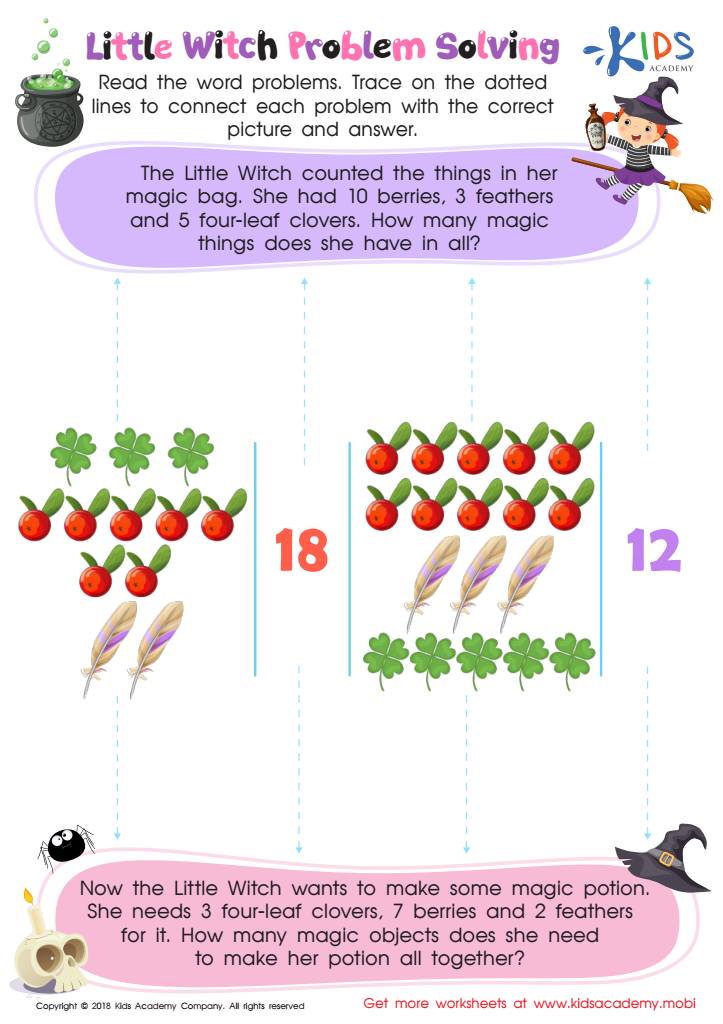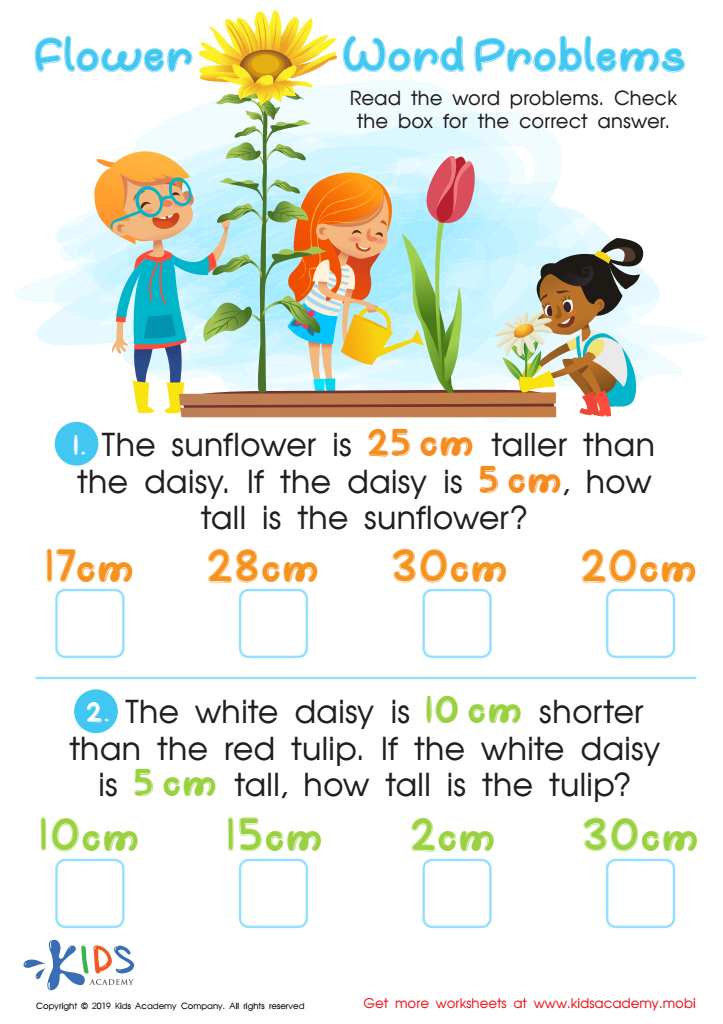Math comprehension Worksheets for Ages 3-6
3 filtered results
-
From - To
Discover our engaging Math Comprehension Worksheets designed specifically for children ages 3-6. These interactive activities focus on building foundational math skills through fun and colorful exercises. Our worksheets cover essential concepts such as counting, number recognition, and simple addition and subtraction, making learning enjoyable and effective. Each worksheet is crafted to capture young learners' attention, encouraging them to develop critical thinking while reinforcing math comprehension. Ideal for both home and classroom use, these resources promote early numeracy skills, setting a strong foundation for future learning. Explore the world of numbers with your little ones and watch them thrive!


Little Witch Problem Solving Worksheet


Flower Word Problems Worksheet
Math comprehension for ages 3-6 is crucial for several reasons. First, early understanding fosters a positive attitude towards math, setting the foundation for future learning. Children develop essential skills such as counting, recognizing patterns, and understanding quantities, which are vital not only in math but in everyday problem-solving.
At this stage, children are naturally curious, making it an essential period for engagement through hands-on activities and playful learning methods. When parents and teachers emphasize mathematical concepts, they nurture critical thinking and rationale, which are important in academic growth. Furthermore, math comprehension can enhance a child's cognitive development by improving attention span and memory, creating a strong base for more complex concepts later on.
Moreover, a solid foundation in math can lead to greater confidence in school, reducing math anxiety that may develop in later years. With society increasingly reliant on technology and data, early mathematical literacy equips children to navigate their future better. By investing in early math education, parents and teachers play a pivotal role in ensuring children are not only prepared for school but also for lifelong success in an increasingly quantitative world.
 Assign to My Students
Assign to My Students
















